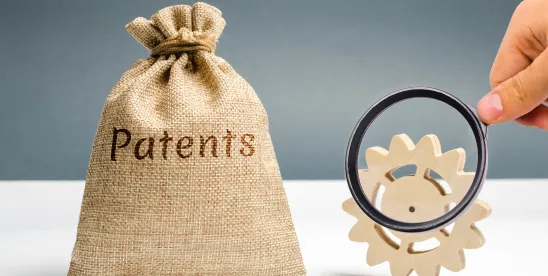The US Court of Appeals for the Federal Circuit affirmed a district court’s decision to deny a defendant’s motion for a new trial on damages, finding that the plaintiff’s damages expert sufficiently showed that prior license agreements were economically comparable to a hypothetically negotiated agreement between the parties. EcoFactor, Inc. v. Google LLC, Case No. 23-1101 (Fed. Cir. June 3, 2024) (Reyna, Lourie, JJ.) (Prost, J., dissenting).
EcoFactor owns a patent directed to mitigating strain on the electricity grid by adjusting thermostat settings within HVAC systems. The patent describes a system where thermostats collect internal temperature readings and use them alongside external temperatures to estimate internal temperature change rates, including future predictions. EcoFactor sued Google alleging infringement based on Google’s Nest smart thermostat products.
After discovery, Google sought summary judgment, arguing that claims of EcoFactor’s patent were invalid as abstract ideas under 35 U.S.C. § 101. The district court denied this motion as well as Google’s Daubert motion to exclude the testimony of EcoFactor’s damages expert. At trial the jury found that Google infringed EcoFactor’s patent and awarded damages. The district court denied Google’s subsequent motions for judgment as a matter of law on noninfringement and for a new trial on damages. Google appealed.
Google raised three key issues. First, it argued that the district court erred in denying its motion for summary judgment. Second, Google asserted that the district court erred in denying its motion for judgment as a matter of law concerning the noninfringement of EcoFactor’s patent. Third, Google claimed that the district court wrongly denied its motion for a new trial on damages, arguing that EcoFactor’s damages expert opinion was based on unreliable methodology.
The Federal Circuit upheld the district court’s decision to deny summary judgment because there were genuine issues of material fact warranting a trial. The Court also affirmed the jury’s infringement verdict against Google, finding that it was supported by substantial evidence. Despite Google’s argument that its Nest thermostats did not meet the claims of EcoFactor’s patent, the Court concluded that expert testimony and corroborating documentation demonstrated otherwise.
On the damages issue, Google argued that EcoFactor’s expert testimony was unreliable because there was no evidence that the parties to the three license agreements used by the expert actually applied the royalty rate stated in the agreement. While Google acknowledged that each of the license agreements include a specified royalty rate, Google argued that each also included a “whereas” clause indicating that the licensee would pay EcoFactor a lump sum amount “set forth in this Agreement based on what EcoFactor believes is a reasonable royalty calculation of [$X] per-unit for . . . estimated past and [] projected future sales of products accused of infringement in the Litigation.” Google asserted that while the agreements may have included a stated rate, there was no evidence that the agreements actually applied the rate in calculating the lump sum payment.
The Federal Circuit rejected Google’s argument. The Court explained that the proposed royalty rate was derived from three admissible license agreements that EcoFactor had with smart thermostat manufacturers in which the parties believed the lump sums were based on the specified royalty rate. The Court concluded that EcoFactor’s damages expert supported his opinion with the reasonableness of the rate derived from these agreements, and his opinion was thus well founded and admissible. The Court also emphasized that the determination of comparability is a factual issue best left to the jury and found no abuse of discretion in admitting the damages expert’s testimony.
Judge Prost dissented, arguing that the majority opinion failed to adhere to established precedent regarding the calculation of damages for patent infringement. She criticized EcoFactor’s damages expert testimony as lacking reliability due to flaws in the methodology used to derive the royalty rate from three licenses. The dissent further argued that EcoFactor’s damages expert failed to adequately apportion the value of the patented technology from other patents covered by the licenses, rendering his analysis unreliable.
Practice Note: This decision highlights the need to thoroughly support damages calculations with tangible evidence and expert testimony to withstand scrutiny. While the dissenting opinion raised concerns about the methodology used to derive the royalty rate, the majority opinion emphasized the sufficiency of evidence and the deference to the trial court’s judgment. In patent infringement disputes, the admissibility and reliability of damages testimony are critical factors in determining trial outcomes.



 />i
/>i

